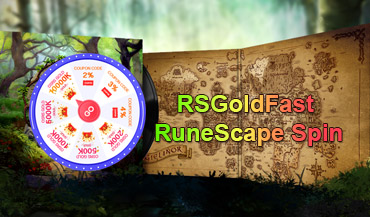Reader, Writer, Web Designer, Husband, Son, Brother, Engineer
Our Authors"Animal Crossing" is the latest game to successfully try the virtual economy
"Animal Crossing: New Horizons" became a popular game during the pandemic by providing a pleasant escape: a virtual paradise where home gamers from all over the world can restart their lives and build idyllic islands with other villagers. These The islands feature birds, dogs, and even ostriches.
The journey of a Seattle resident started when she tried to make money quickly to develop her island. There are many ways to build Animal Crossing Bells in the game-you can break rocks, shake trees and even catch and sell fish. However, the most complicated method is to trade radishes in the "stem" market.
On sites such as Turnip.Exchange and Reddit, mushrooms have sprung up, with 319,000 "radish farmers" forums discussing prices and selling products. A project called Turnip Prophet attempts to use information collected from game software code to predict the price of carrots.
At that time, Mr. Feng, who was engaged in commercial property management every day, joined a large number of new stock market investors, who bought and sold for free through online brokers. In the spring, she invested about $1,000 in technology stocks: Palo Alto Networks Inc., a network security company, Nvidia Corp., a semiconductor company, and SquareInc, a payment processor. She also dabbled in penny stocks related to Covid.
"Animal Crossing" is the latest game among many successful games that have successfully tried virtual economy. The in-game economy of "World of Warcraft" and "Second Life" can replicate real-world economic phenomena, such as scarcity of resources and taxes. A professor even became a career by using basic economic principles to study the game world.
John Poelking, a senior game analyst at Mintel, said there are emotional similarities between the accumulation of wealth through carrots and the establishment of real-life investment portfolios. He said: "The bet is very different because it is the currency of Animal Crossing Items and the real world, but it is still an investment." "When you lose the in-game currency, you feel hurt. Even if it is not Real, but real to you."
Investopedia and robot consulting firm Betterment have used Animal Crossing to explain basic and more advanced market concepts such as supply and demand, arbitrage, and how to perform basic and technical analysis of actual inventory. Betterment said that the game shows that short-term investment is risky, monitoring the investment portfolio will generate pressure, and diversification is very important.
The virtual market does not fully reflect the stock trading in real life. In the game, every Sunday, players can buy carrots from the fictional character Daisy Mae. The price of carrots on everyone's island is different, only changing twice a day. The real fun comes from side deals, when sellers invite other players to their islands and try to offer deals.
Jessica Amado, a senior who is about to enter Rutgers University, said that tapping the carrot market taught her the importance of profiting before prices fall. The 22-year-old often does not sell turnips when prices are rising, and thus often loses money-hold on and hope they will continue to rise.
When her father found out that she was trading carrots, he gave her $120 to invest in real stocks, and then she put the carrot courses into practice. She bought 20 shares of Plug Power Inc. for $5.60 earlier this summer. She said that she chose this company because it was listed as one of the 100 most popular stocks in the Robinhood app, and her father also wrote in an article about the best stocks under $10. Mentioned this company.
Once the stock price broke through $10 and made a profit of about $100, she gave up the investment. But it has been rising ever since. She said: "I hope I will last longer, but I really don't regret it, because profit is profit after all." "It is a good decision when it is difficult to make money during the isolation period."
Kurt Boyer, 50, from Florida software developers Yocom and McKee Inc., developed an algorithm that can predict the carrot price of earlier versions of the game. A few years ago, he tried to do this through actual progress, but it was not that easy.
Our Authors
Recently read
-
A Beginner's Guide to Old School RuneScape
Apr-10-2025 PST /runescape -
OSRS Slayer: Essential Slayer Training Guide
Apr-08-2025 PST /runescape -
Diablo 4: The Woodsman of Nevesk Quest Guide
Apr-01-2025 PST /Diablo4 -
How to Unlock Mounts in New World: Aeternum Guide
Mar-24-2025 PST /New World

